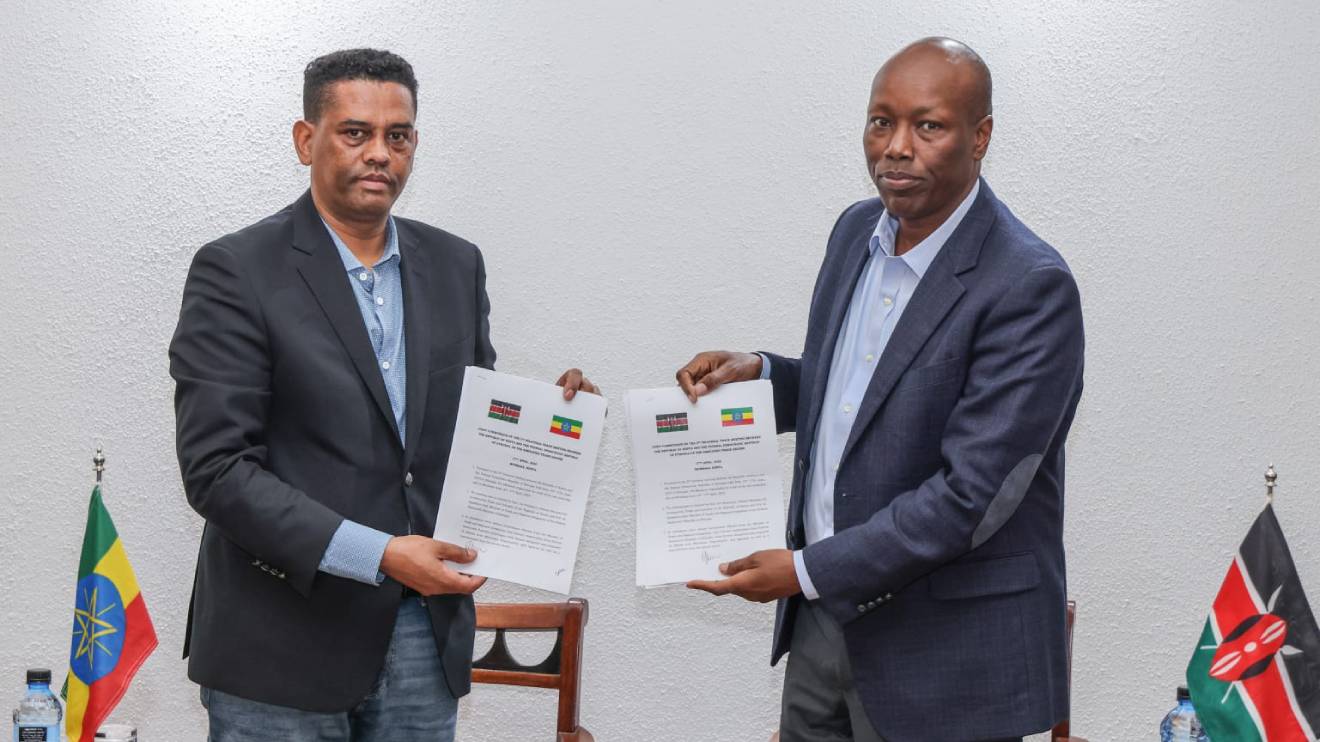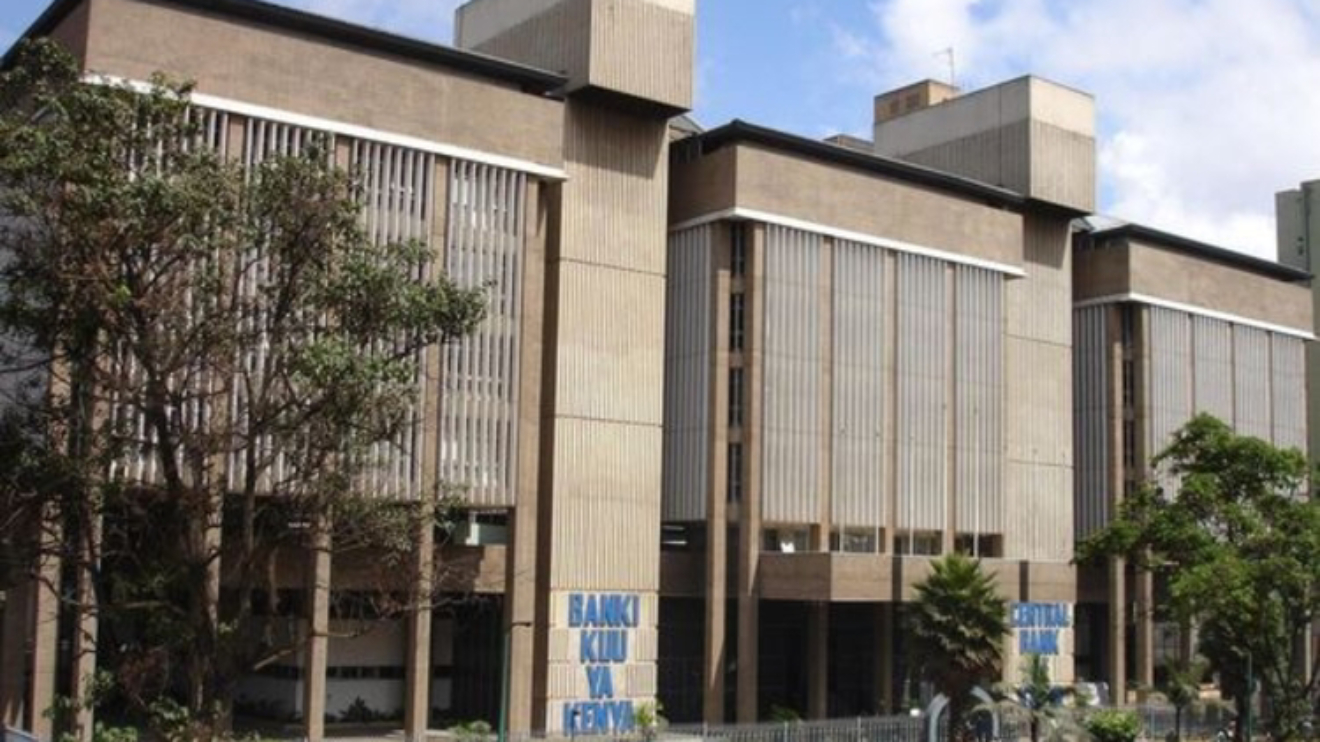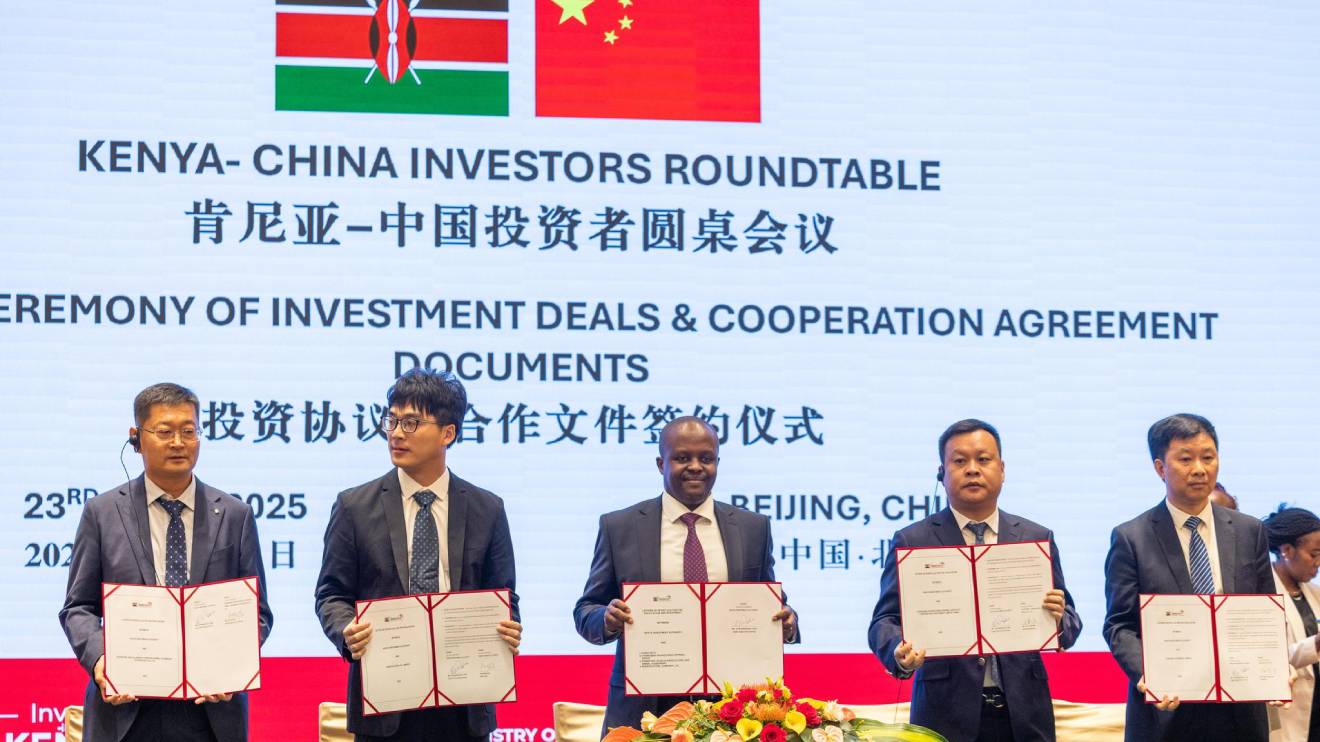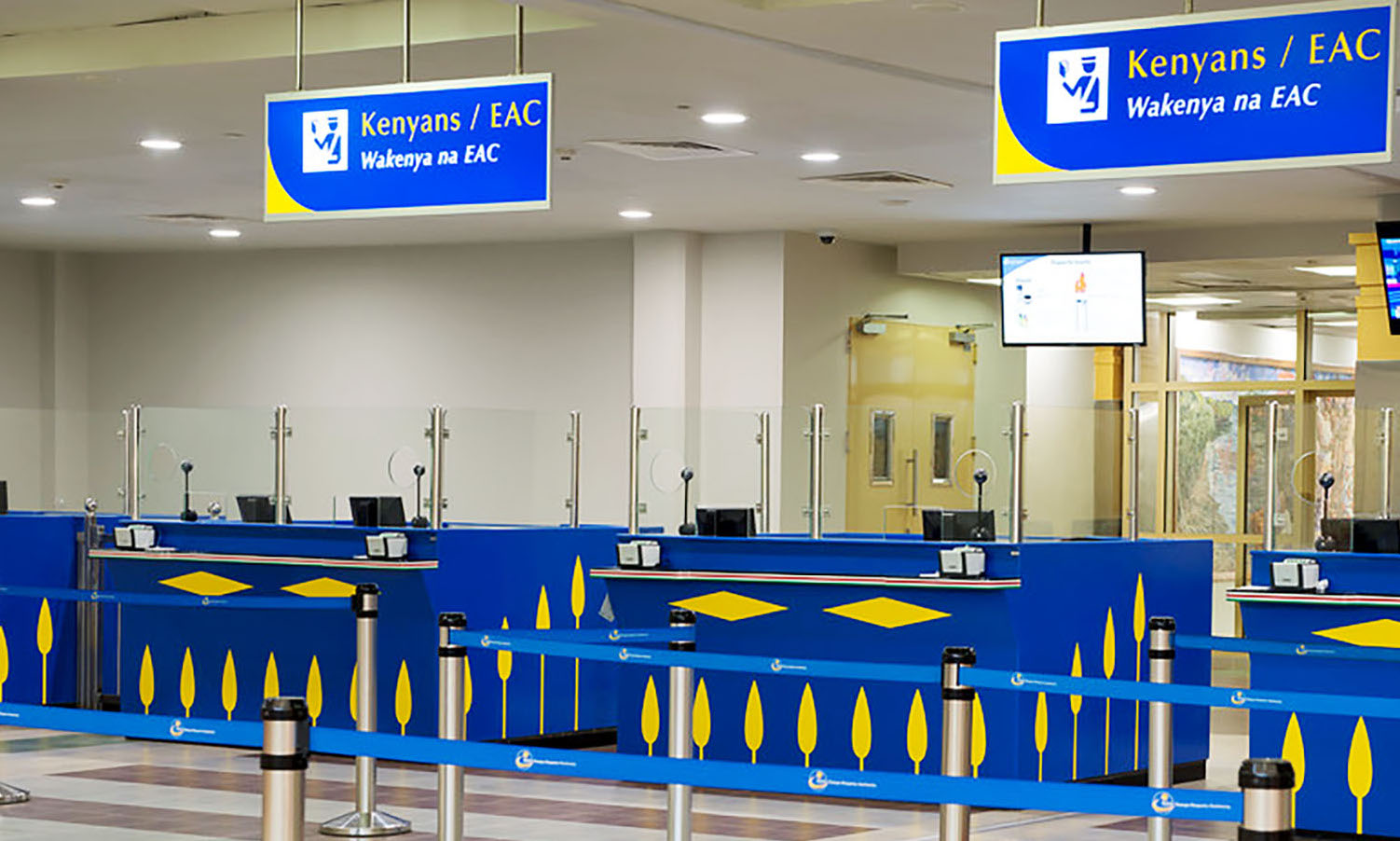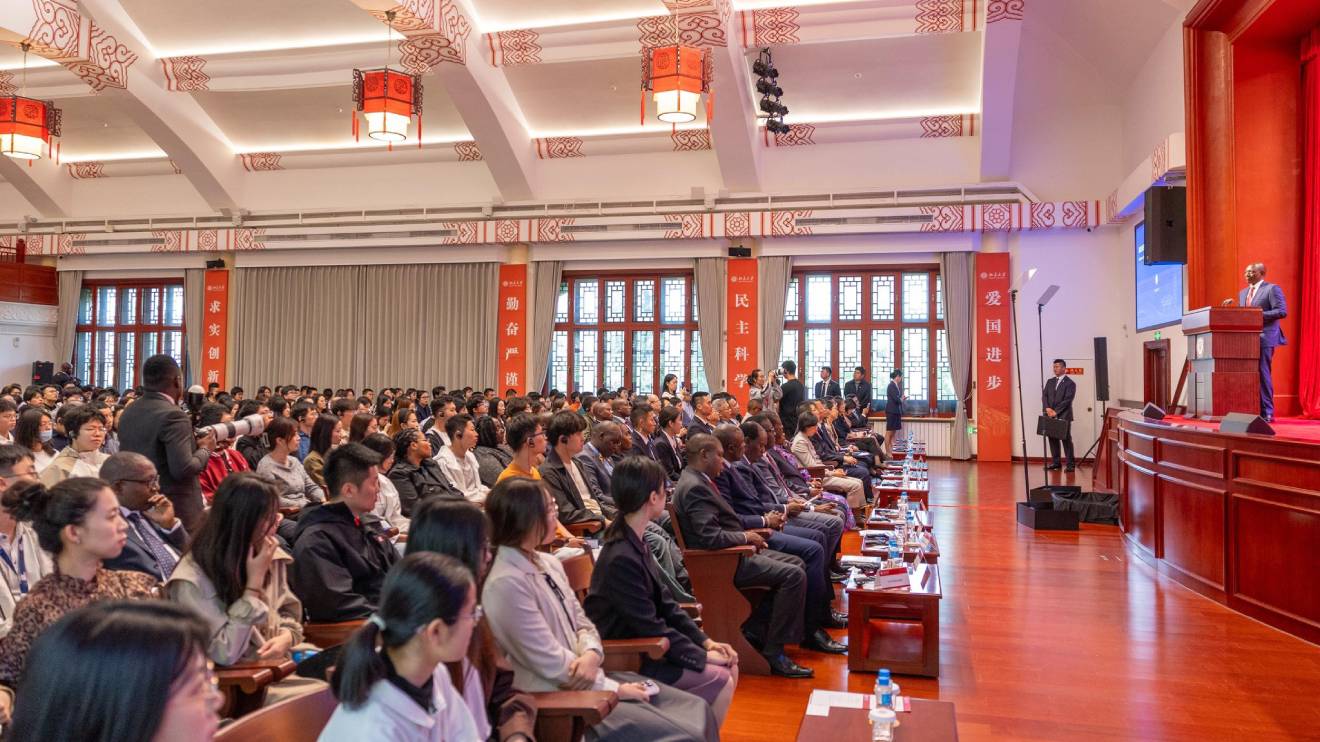Kenya and Ethiopia have signed a bilateral agreement aimed at fast-tracking the African Continental Free Trade Area (AfCFTA) implementation through a simplified trade regime, marking a significant step towards boosting commerce across their shared border.
The deal was formalised in Mombasa during the 3rd bilateral meeting between the two countries, culminating in the signing of a Memorandum of Understanding by senior government officials.
It outlines a collaborative framework that will allow border communities to engage more freely in cross-border trade.
Cabinet Secretary for Investments, Trade and Industry, Lee Kinyanjui, who represented Kenya, said the government was prioritising smoother trade operations at the Moyale border to resolve long-standing commercial bottlenecks that have affected local livelihoods.
“We are emphasizing that within the bigger scope of things Kenya and Ethiopia will be looking for ways in which we can implement free trade so that goods produced here or in Ethiopia can come and people can work anywhere in the two countries not forgetting tourism in Mombasa and many other things that will boost our economy,” he said.
Read More
He observed that Ethiopia supplies vital commodities that Kenya requires, while Kenya, in turn, produces manufactured goods that are of interest to the Ethiopian market.
Kinyanjui further urged citizens to invest boldly to capitalise on the new trade agreement.
He also pointed to Kenya’s investment in transport and trade infrastructure, calling on traders to make use of the improved systems to grow business with neighbouring states.
“The government will continue to engage with neighbouring countries to make sure there is a good trading environment for the people,” he said.
On the Ethiopian side, Minister of Trade and Regional Integration, Kassahun Gofe, described the meeting as a critical turning point in the effort to operationalise AfCFTA at the grassroots.
Gofe said the negotiations tackled “two key outstanding issues, which include areas of border trade, trading threshold, travel frequencies and the common list of product prices.”
He announced that both governments agreed that Ethiopia’s border trade coverage would extend 50 kilometres from the shared frontier, while Kenya’s would stretch up to 100 kilometres.
The trade value threshold for small-scale traders was set at 1,000 US dollars, allowing cross-border trade up to four times a month, and based on a common list of approved goods.
“Details of the deliberations are continued in the matrix of agreed minutes, and both parties have agreed to collaborate on the implementation of the Africa Continental Free Trade Area,” he said.
Gofe commended the technical teams from both sides for pushing through two years of talks, stating: “We have finally signed the agreement after two years of serious negotiations; thus, the main issue will be implementing and starting trade of what was agreed.”
As part of the deal, Ethiopia committed to initiating and circulating the draft legal instrument to formalise the agreement.
The move signals the beginning of a new chapter for thousands of informal and small-scale traders in the border counties who stand to benefit from eased trade conditions and a harmonised framework.

